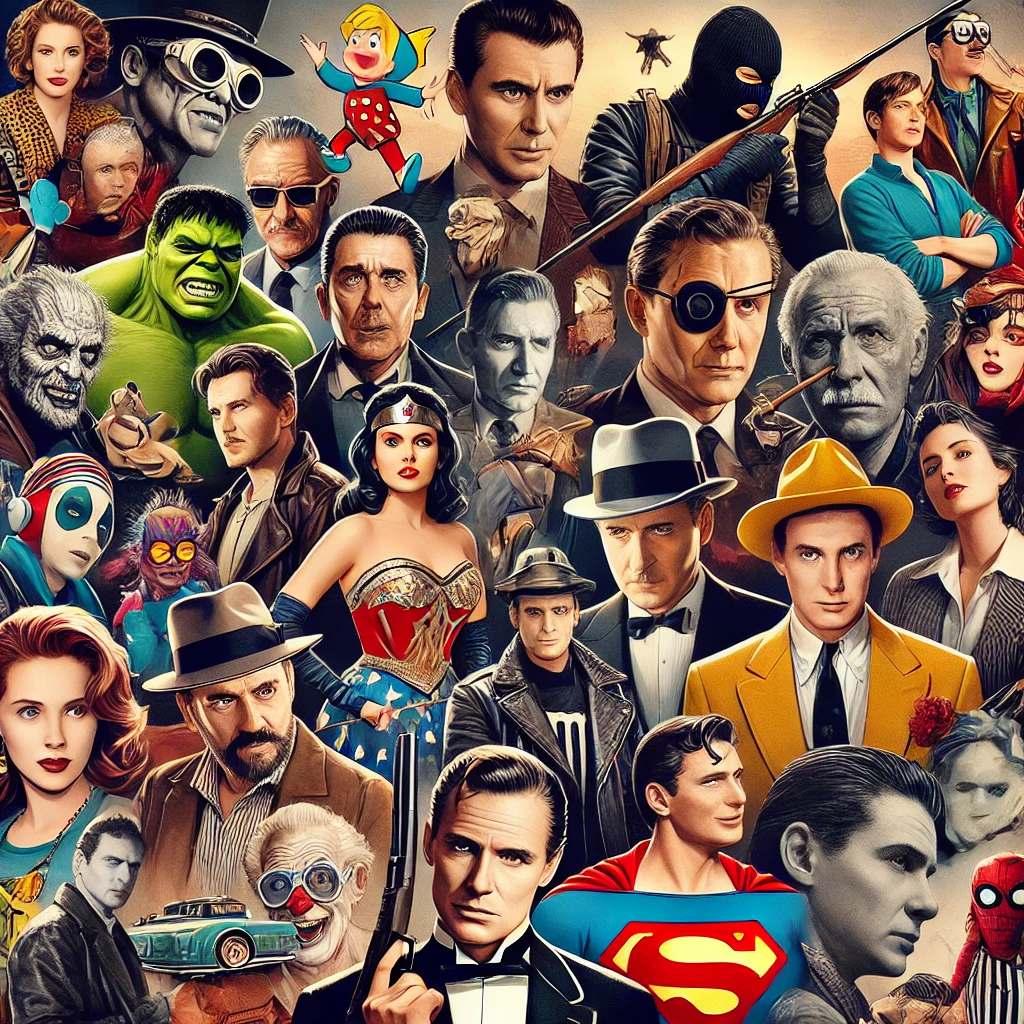Drama Movies: A Deep Dive
Table of Contents

Understanding Drama Movies: Themes, History, and Impact. Drama movies hold a special place in cinema, often providing an emotional depth that resonates with audiences on a personal level. They typically explore the complex human experience and address serious subjects like love, loss, struggle, morality, and personal growth. In this article, we’ll explore the defining elements, various sub-genres, and history of drama films and discuss their influence on popular culture.
1. Defining Elements of Drama Movies
Drama movies focus on emotional and relational development rather than action. Here are some defining characteristics:
- Character Development: Dramas often have multi-dimensional characters with significant emotional journeys.
- Realistic Situations: Dramas address issues people face in real life, often presenting them in relatable ways.
- Emotional Conflict: Central to drama films are conflicts—personal, interpersonal, or societal—that drive the story.
- Themes of Morality and Human Condition: Dramas explore deep questions, often diving into topics like ethics, redemption, or societal injustices.
2. Types of Drama Films
Drama movies span a variety of sub-genres, each adding unique perspectives and narrative approaches to the traditional format.
a. Romantic Drama
- Overview: These focus on love stories and romantic relationships, often highlighting the challenges and emotional obstacles faced by the characters.
- Example: The Notebook (2004), which follows a passionate, bittersweet love story set against social differences and the passage of time.
b. Crime Drama
- Overview: Crime dramas explore the psychology behind criminal acts, typically focusing on the police, detectives, or the criminals themselves.
- Example: The Godfather (1972), a film about organized crime and family dynamics, considered a masterpiece in crime drama.
c. Historical Drama

- Overview: These films depict historical events or figures, often adding dramatic interpretations to create an engaging narrative.
- Example: Schindler’s List (1993), which tells the story of Oskar Schindler’s efforts to save Jewish lives during the Holocaust.
d. Legal Drama
- Overview: Focused on courtroom battles, legal dilemmas, and moral debates, legal dramas engage audiences with intellectual conflicts.
- Example: A Few Good Men (1992), where a military court case tests the integrity of those involved.
e. Family Drama
- Overview: Family dramas focus on the dynamics, conflicts, and bonds within families, often touching on generational differences and familial obligations.
- Example: Little Miss Sunshine (2006), a road-trip family story that explores the challenges and quirks within family relationships.
3. History and Evolution of Drama Films
Drama movies date back to the early days of cinema. Early films relied on exaggerated acting and melodramatic expressions, as silent films were limited by the absence of spoken dialogue. By the 1920s, as sound technology advanced, dramas grew more sophisticated in storytelling. Here’s a brief overview of key eras in drama films:
- The Golden Age (1930s-1950s): Directors like Alfred Hitchcock and Orson Welles pushed cinematic boundaries, creating visually compelling stories with layered narratives.
- The New Hollywood Era (1960s-1970s): Movies like Taxi Driver (1976) and One Flew Over the Cuckoo’s Nest (1975) portrayed anti-heroes and existential conflicts, reflecting societal unrest.
- Contemporary Drama (1990s-Present): With modern technology and international collaboration, recent dramas like The Shawshank Redemption (1994) and Parasite (2019) tackle social, cultural, and political issues on a global scale.

4. Themes in Drama Movies
Dramas commonly tackle universal themes, often involving personal growth, love, loss, or redemption. Here are some frequent themes:
- Resilience and Hope: Many dramas showcase characters persevering through hardships.
- Example: The Pursuit of Happyness (2006) depicts a man’s determination to overcome poverty and provide a better life for his son.
- Redemption and Forgiveness: Characters seeking or offering redemption are a powerful theme in dramas.
- Example: Good Will Hunting (1997) tells the story of a troubled genius who finds a sense of purpose and healing through human connections.
- Tragedy and Loss: Emotional stories of loss are central to many dramas, often dealing with death or broken relationships.
- Example: Manchester by the Sea (2016) explores grief and the struggle to find meaning after a traumatic loss.
5. Impact of Drama Movies on Society
Drama movies often push viewers to think critically about societal issues and personal values. Their influence includes:
- Raising Awareness: Films like Philadelphia (1993) brought HIV/AIDS awareness to the forefront, promoting understanding and empathy for affected individuals.
- Cultural Reflection: Dramas can reflect and shape societal attitudes, such as changing perceptions of mental health, relationships, and justice.
- Social Change: Some films have inspired real-life movements. For instance, Erin Brockovich (2000) inspired increased environmental activism due to its story of corporate negligence.
6. Notable Drama Directors and Their Style.Understanding Drama Movies: Themes, History, and Impact
Several directors are known for their contributions to drama films, each bringing unique storytelling styles:
- Martin Scorsese: Known for character-driven stories with themes of guilt, redemption, and morality (Raging Bull, Goodfellas).
- Steven Spielberg: Masterfully blends personal stories with historical events (Schindler’s List, Saving Private Ryan).
- Christopher Nolan: Integrates psychological depth with intricate narratives (Interstellar, The Prestige).
7. Drama Movies in Today’s Cinema
Today, drama movies thrive on streaming platforms and the big screen. With global accessibility, dramas from diverse cultures have gained international acclaim, allowing audiences to appreciate new perspectives and themes. The rise of indie films has also led to greater creative experimentation, allowing unconventional stories to reach wide audiences.
8. The Future of Drama Movies
As technology advances, drama movies are likely to explore new storytelling forms—virtual reality experiences, interactive stories, and multimedia collaborations. Themes of identity, technology, and modern social issues may continue to evolve, making drama a dynamic genre that will adapt to the concerns of future generations.
Understanding Drama Movies: Themes, History, and Impact
Conclusion
Drama movies will remain essential to cinema, resonating with audiences by reflecting the human experience. They give a voice to our fears, desires, and dreams, helping us see our own lives more clearly and connect with others in meaningful ways.



